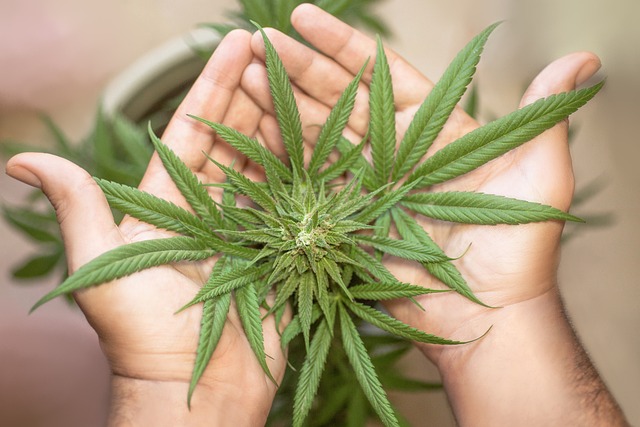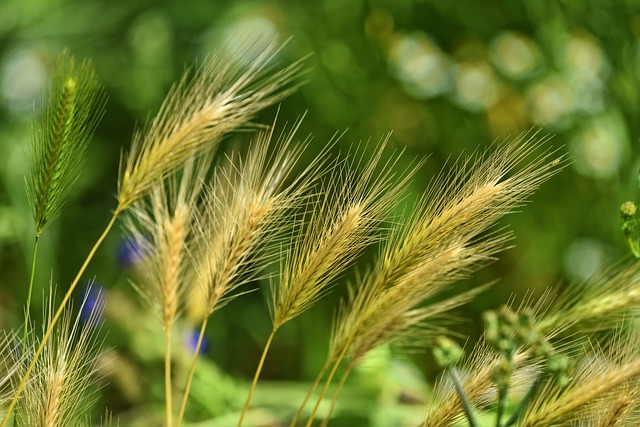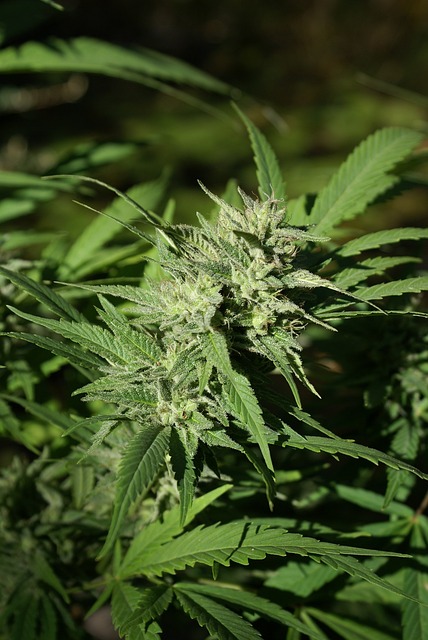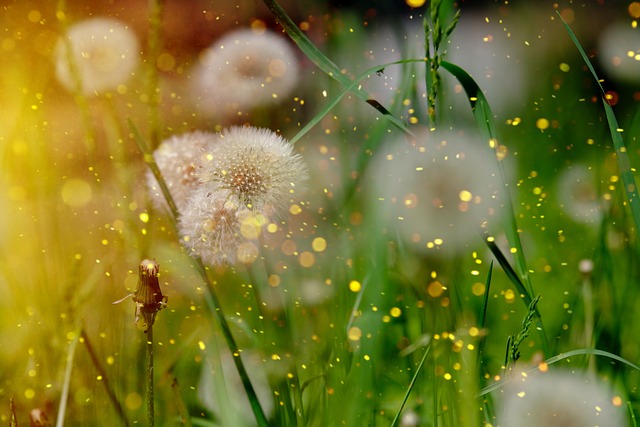As of early 2023, THCA (Tetrahydrocannabinolic Acid) flowers are legally available for medical and recreational use in Massachusetts, regulated by the Massachusetts Cannabis Control Commission (MA CCC). Medical patients with a registered card can include THCA flower in their treatment plans, while recreational users must comply with possession limits and purchase from licensed retailers. Cultivation of THCA-rich cannabis is permitted for adults over 21, with the caveat of adhering to specific regulations and local municipal laws that may impose additional restrictions. Consumers can use THCA flowers through smoking or vaporization before decarboxylation or infuse them into edibles. It's important to consume responsibly, adhere to state-imposed limits on possession and cultivation, and procure products from trusted sources for safety and accuracy in labeling. THCA is recognized for its potential therapeutic effects, including pain relief and anti-inflammatory properties, but users should start with low doses and consult healthcare providers regarding interactions with other medications. The state's progressive cannabis laws reflect a commitment to a safe, regulated environment for exploring the benefits of THCA, underscoring its legal status in Massachusetts.
explore the nuances of THCA flower legality in Massachusetts, this article serves as a definitive guide for enthusiasts seeking clarity on its status. Delve into the practicalities of cultivation and consumption within state boundaries, with actionable tips tailored for residents. Additionally, uncover ways to maximize the potential benefits of THCA flowers, exploring usage, effects, and safety measures to ensure an informed and responsible approach to this unique cannabinoid. Navigate the landscape of THCA legal standing and usage in Massachusetts with confidence.
- Understanding THCA Flower Legality in Massachusetts: A Comprehensive Guide
- Cultivating and Consuming THCA Flowers Within Massachusetts Borders: Practical Tips for Enthusiasts
- Maximizing the Benefits of THCA Flowers in Massachusetts: Usage, Effects, and Safety Considerations
Understanding THCA Flower Legality in Massachusetts: A Comprehensive Guide

In Massachusetts, the legal status of THCA flower, a form of cannabis that exists in its raw, acidic state before heat is applied to convert it into THC, has been a topic of interest and confusion. As of my knowledge cutoff in early 2023, THCA flower falls under the umbrella of cannabis products legalized for medical use since 2012 and for adult recreational use since 2018. However, the specific regulations concerning THCA flower have evolved over time, necessitating careful attention to state laws for up-to-date compliance. Medical patients in Massachusetts, who have a registered card, are permitted to possess and use THCA flower as part of their treatment regimen. For recreational users, possession limits are defined, and the substance must be purchased from a licensed retailer. The Massachusetts Cannabis Control Commission (MA CCC) oversees both medical and adult-use cannabis programs, providing guidelines that include testing and labeling requirements for THCA flower to ensure safety and consistency in product offerings. It is crucial for consumers, whether medical or recreational, to stay informed about the latest legal developments, as laws and regulations can change. Consumers should also be aware of local ordinances, as some municipalities within Massachusetts may have additional restrictions on cannabis products, including THCA flower. Understanding the current legal landscape for THCA flower in Massachusetts requires a commitment to staying updated with official sources, as the legal environment continues to adapt to the evolving nature of cannabis policy and public opinion.
Cultivating and Consuming THCA Flowers Within Massachusetts Borders: Practical Tips for Enthusiasts

Massachusetts residents and visitors interested in cultivating and consuming THCA flowers can find a conducive environment within the state’s legal framework. As of the knowledge cutoff in 2023, the cultivation and possession of THCA-rich cannabis flowers are legally permissible under state law for adults aged 21 and over, provided they adhere to the regulations set forth. To ensure compliance with these regulations, it is advisable to stay informed about any updates to local laws, as they can vary by municipality within the state.
For those looking to cultivate THCA flowers in Massachusetts, it’s crucial to start with high-quality seeds or clones from a reputable source. These plants thrive in environments with ample sunlight and a consistent temperature range. A well-draining soil mix enriched with organic matter will promote healthy growth. Regular trimming and maintenance are key to optimizing the potency of THCA, as this cannabinoid is abundant in raw, uncured cannabis flowers. When it comes to consumption, THCA flowers can be smoked or vaporized, but they will only contain THCA if not heated beyond their decarboxylation point. For those who prefer edibles, the flowers can be infused into oils and butters, which can then be used in various culinary creations. Always prioritize safety by consuming responsibly and in accordance with local regulations.
Maximizing the Benefits of THCA Flowers in Massachusetts: Usage, Effects, and Safety Considerations

In Massachusetts, where THCA (Tetrahydrocannabinolic Acid) flowers are legally permissible under state law, enthusiasts and consumers have a unique opportunity to explore the potential benefits of this cannabinoid in its raw form. THCA is non-psychoactive, meaning it won’t induce a high like its counterpart, THC (Tetrahydrocannabinol). Instead, it’s often sought for its therapeutic properties, including pain relief and anti-inflammatory effects. To maximize the benefits of THCA flowers in Massachusetts, it’s crucial to understand proper usage and safety considerations. These flowers can be consumed through various methods, such as vaporization or infusion into edibles, with each method affecting onset and duration of effects. Users should start with a low dose to gauge individual sensitivity and gradually adjust based on experience. It’s also important to note the legal context; while THCA flowers are legal in Massachusetts, adherence to state-imposed limits on possession and cultivation must be observed. Safety considerations include ensuring that these products are sourced from reputable dispensaries or producers, as product purity and label accuracy can vary. Consumers should also be aware of how THCA interacts with other medications they may be taking and consult healthcare professionals if they have any concerns. By following these guidelines, Massachusetts residents can fully enjoy the potential wellness benefits that THCA flowers offer within a safe and legal framework.
In conclusion, for those in Massachusetts seeking to engage with THCA flowers within the bounds of legality, understanding the intricacies of state law is paramount. This article has provided a thorough guide on the legality of THCA flower possession and cultivation, practical tips for enthusiasts to enjoy these substances responsibly, and insights into maximizing their potential benefits while ensuring safety. As THCA legal status in Massachusetts continues to evolve, it’s crucial for consumers to stay informed about the changing landscape of cannabinoid laws. By adhering to state regulations and approaching THCA consumption with care, enthusiasts can fully appreciate the unique properties of these flowers.
